2024-2025 Interns
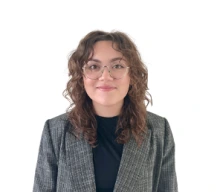
Jillian Aviles is currently a junior studying Business Management and minoring in Food Studies and Spanish. She grew up in Phoenix, Arizona to Puerto Rican parents, and learned very early in her life that she loves to bake – starting out with toy kitchens and Easy Bake Ovens. From this, she developed a major passion for all things food. Her dream is to attend culinary school post-graduation and, eventually, go on to establish her own bakery and café. Her interest in food studies stems from the fact that food is a major point of connection between groups of people but is also linked to sustainability, gender, history, health, and more.
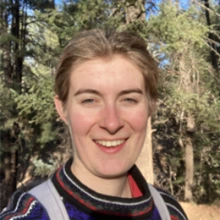
Cara Buchanan is a senior undergraduate student studying Environmental Studies with minors in World Literature and Spanish. They grew up spending time in the ocean and woods of Massachusetts with their Mom, Dad, younger brother, and two cats. Cara is from Western European settler ancestry and a relatively privileged background. In college, they became interested in colonialism and its relationship to social and environmental justice through local activism. Cara hopes to act in solidarity with oppressed peoples throughout their life. They enjoy hiking, reading, dancing, gardening, knitting, and hanging out in their yard with their cats.
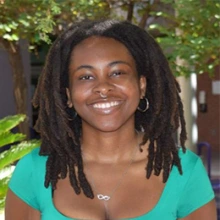
Desteni James is a Junior majoring in Sociology with minors in Nutritional Sciences and Educational Psychology. Growing up, she didn’t have the best nutritional habits. Because of this, she became interested in nutrition during her weight loss journey and wants to educate as many people about the different types of food they can eat to ensure they live a healthy lifestyle. She is also passionate about understanding the sociological factors that cause food insecurity among marginalized groups, and finding solutions to end it.
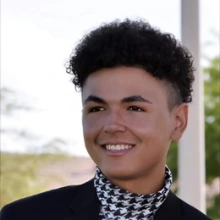
Ryan Green is a junior majoring in Urban and Regional Development and minoring in Environmental Studies. Since he began attending the University of Arizona, he has developed a strong interest in environmental justice, urban planning, public transportation, and pedestrian mobility. He believes that food has the power to foster unity and build relationships with our neighbors and ecosystem. As an Arizona native, he recognizes how vital water is for personal, social, and environmental health. Tucson, being the biggest city he has lived in, has paved the way for his future aspirations. After graduation, he hopes to pursue a career that helps people in whatever form it may take.
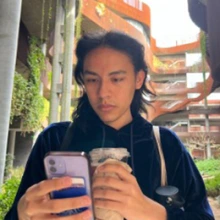
Carlos Montalvo (He/Him) is a third year Environmental Studies major at the University of Arizona. Being Latino and from the arid area of Arizona, he is passionate about environmental issues regarding his community. He is specifically interested in what true sustainability is and trying to disassemble greenwashed terms. Carlos enjoys writing poems as a way of storytelling and as an outlet for stress, and his big family drives him to fight for a future where the youth and future generations have hope for a world where everyone gets the resources they need.
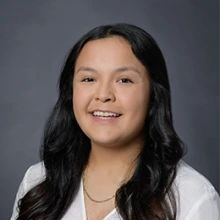
Yasmin Morales is a senior at the University of Arizona majoring in Care, Health, & Society with a minor in Spanish. She is a first generation latina originally from the rural bordertown of Bisbee, AZ. The Bisbee community has given Yasmin the support to succeed in all opportunities that come her way despite being limited in resources. Yasmin’s inspiration and drive for success comes from the sacrifices her family and small community have made. Yasmin hopes to go onto become a physical therapist as the ability to work with different ages, and in different settings is very appealing to her. Her goal is to give back to the communities that have given so much to her through working against the many injustices her community faces.
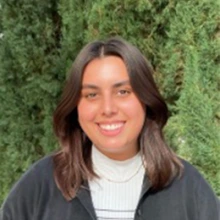
Maya Lucia Steinberg is a writer from El Segundo, California. She is a fourth-year undergraduate studying Gender and Women’s Studies and Mexican American Studies at the University of Arizona. She works in the Acquisitions Department at the University of Arizona Press and as a grant writer for Read Better Be Better, an Arizona-based literacy nonprofit. As a storyteller, her work involves the elaborate connections that exist between racialized bodies of land, water, and literature. Her ancestors come from Tepic, Nayarit (Wixárika/Huichol), Mazatlán, Sinaloa, and Moundville, Missouri.
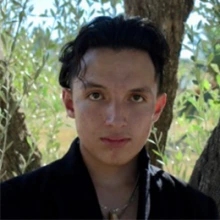
Frankois Valdez is a first-year student at the University of Arizona pursuing a double major in Global Studies and Public & Applied Humanities. He enjoys playing percussion, reading sci-fi books, baking, and dancing. A Tucson native, he grew up on the south side of the city in a low-income neighborhood, and has had a passion for storytelling since performing as the stay-puft marshmallow man in the third grade. Frankois has strong interests in the personal and cultural implications of Mexican-American place and identity, and the power of social change through collective action. A child of Mexican immigrants, he has worked hard to support the spirit of his community, and is currently a contributor at the University of Arizona’s Co-Design Collaborative. He hopes to tell stories on the intersection between racial identity, culture, and the power of environmental justice to bring us together in the US-Mexico borderlands region.
2022-2023 Interns
Amrita Khalsa is a senior majoring in Food Studies with a minor in Spanish. As a Tucson native and former baker with childhood travel experience, she has grown passionate about food and how it relates to both culture and community in diverse ways. She has channeled this passion into her volunteer work for Iskashitaa Refugee Network and Mission Gardens, and continues this passion through her Earth Grant internship with Flowers and Bullets in Tucson’s Barrio Centro neighborhood. Amrita is excited for the CRFS food justice writing internship to work alongside food justice mentors and develop her food writing skills to utilize in future career opportunities. She wants to share stories that discuss topics such as food access, food waste, and food sovereignty.
Ander Setterberg is currently in his fourth year at UArizona, studying both Veterinary Science and Gender & Women’s Studies. Growing up in the midwest, he was surrounded by wheat and corn fields, but also strawberry patches, poison ivy, and apple orchards. There, he learned he has the opposite of a green thumb, but has a special understanding with animals. He has spent a little less than half of his life in Arizona. Tucson is the largest town he's lived in, and every day he learns more about its culture and feel like he has a new home. Currently, he takes care of our community members’ pets and has a micro-ecosystem to raise mollies. After he graduates veterinary school, he anticipate to educate others about the livestock industry, focusing on increasing biosecurity in that field.
Cesilia Garcia grew up in Bisbee, Arizona, a small border town. She is a History and Political Science Major with a minor in Adolescent, Community, and Education. She enjoys food history and finding out anything that people ate in the past and how it has evolved into the food that we know now. She also likes anything dealing with social justice because she is passionate about learning about past struggles and hopefully continuing to help fight against injustices. This internship has been a combination of all her interests. She also enjoys drawing and being creative when I can. After she graduates, she plans on teaching High School social studies hopefully out of state but not too far away from home. A fun fact about Cesilia is that she has met two Arizona State senators.
Halie Tewa is a sophomore here at the University of Arizona. Her major is Nutritional Sciences, and she is on the pre-Physician’s Assistant track. She is a part of the Hopi tribe and grew up on the Hopi reservation. Her culture and community have been a large part of her life and has shaped her into who she is today. She wants to help encourage food sovereignty among indigenous communities. It is so important that we continue to keep our traditional dishes and foods alive. Upon graduating, it has always been her goal to return to the place she has forever called home and help fill the lack of medical professionals in my community.
Juan Sainz was born in Santa Anita, Guadalajara, Jalisco, Mexico. He is about to finish his bachelor’s degree in Food Studies with minors in Nutritional Sciences and Food Safety. Food is his biggest hobby, passion, and study topic! As a multicultural person, he feels the need for food to have a cultural component to it which deepens its meaning to more than just nutrition. As an autistic person, he likes to reflect on ways that neurodivergence can contribute to food activism and food systems in more creative ways. Lastly, he is an avid fan of persimmons as they are not only delicious but they hold a beautiful meaning to him and his family.
Kaleigh Brown is an aspiring filmmaker who grew up in Tucson, Arizona, where she spent time exploring the desert just beyond her backyard. She is currently a senior pursuing a dual major in Film and Television Production and Environmental Studies at the University of Arizona. Upon graduation in the spring, Kaleigh plans on pursuing a career in cinematography. She first became interested in food justice and examining current food systems during her sophomore year of college when she learned about Tucson’s own vast food history. During her time as a part of the Food Justice Storytelling cohort, she aims to create visual projects that share the myriad local methods in which anyone can participate in and promote food justice. In her free time, Kaleigh loves watching movies, gardening (and watching seedlings emerge from the soil), knitting, baking vegan goods and rollerskating.
Mila Tomizuka is excited to have the opportunity to work with the Center for Regional Food Studies on the issue of food justice through storytelling. She is currently majoring in Spatial Design and Creative Writing and is interested in creative records of how humanity constructs meaning through space and place. She sees food as first and foremost a medium for connection with our ecosystem, with our past and future, and with each other. Her interest in food justice stems from a passion for cooking, and a desire to change the conversation around sustainability in food from an individual to a communal responsibility. Throughout this internship, she hopes to explore food’s role in constructing (and deconstructing) dominant historical narratives in order to bring awareness to the importance of building food sovereignty and honoring traditional foodways in the fight for a more resilient, equitable, and
joyful future.
Paloma Ximena Martinez grew up in the Sonoran Desert with her hometown being Tucson, Arizona. Things she loves to do include hiking, cooking, gardening, learning about medicinal plants, and practicing jiu jitsu. This year she will be graduating with a B.A. in Food Studies and is looking forward to spending more intentional time cooking and connecting with her family and community through food. Paloma’s Food Studies major has taught her a lot about history, what food means to herself and her community, which she hopes to showcase in her project for this Internship!
Rezwana Islam is a senior at the University of Arizona double majoring in Public Health and Creative Writing with minors in Natural Resources, Nutrition and Food Systems, and Korean Language. She’s interested in multidisciplinary work looking at the connection between public health, food and the environment with a specific focus on global fisheries. Being the child of Bangladeshi immigrants, the preservation of cultural food practices is also important to her and she especially have an interest in Asian food culture and street food culture.
Tommey Jodie is Diné (Navajo), She is from Teesto, Arizona but grew up in Winslow, Arizona. She is currently a third year at the University of Arizona. With a dual major in Food & Nutrition Systems and Food Studies as well as minoring in Native Studies. She grew up on the outskirts of the Navajo Nation and would like to become an advocate for Native food security, sovereignty and foodways. She plans on working within the Navajo Nation and with local community leaders to develop long-term/permanent strategies to ensure Native food security. She believes that through foodways, Indigenous people can engage in a recovery from historical trauma and promote indigenous healing and self-determination.
Valeria Ochoa is currently a senior student studying Nutritional Sciences in the Dietetics Program at UA. She was born and raised in Agua Prieta, Sonora, and lived in between Mexico and the U.S. Through the unique experience of living between countries, she got to experience the differences between how we eat, play, talk, and live. As she got older, she grew to appreciate the importance of knowledge and just how important education is to our lives. Another thing she became passionate about was nutrition. She realized basic needs such as education and nutrition affect how we experience the world and that passion led me to dietetics. When she graduates, she hopes to work with low income and marginalized communities to empower them to be knowledgeable about their nutrition. She hopes to work in prevention and community nutrition for this population and to become a Certified Diabetes Education in the future.
Zabrina Duran was born and raised in Tucson, Arizona. She is a 4th-year student at the University of Arizona majoring in Environmental Studies and Geography with a minor in Sustainable Built Environments. For as long as she can remember, she has been passionate about the environment and its well-being. Growing up in Arizona has not only allowed them to experience the Sonoran Desert environment but also to feel deeply connected to their community and culture. She believes that a key part of building a sustainable & resilient future relies heavily on community-based work. In the future, that is what she would like their work to focus on in terms of helping build a sustainable future.
Jesse Pablo not pictured.
Mentors
Maegan Lopez is Tohono O'odham & from a community called New Fields, it is located near the US/Mexico International Border. She has one son, his name is Maximus and he goes to school at Tucson High. He is learning so much by helping Maegan at Mission Garden on the weekends. Maegan works at Mission Garden as an Assistant Gardener/Cultural Outreach Liaison. It is a living agriculture museum, a breathing, rooted space that tells the stories of our food culture here in Southern Arizona, Mexico and beyond. She learned how to plant from her grandpa. As a kid she followed him and her grandma around when they would harvest wild plants for basket weaving. She learned about picking and cleaning and preparing grasses for weavers. She also learned how to harvest wild edible foods out in the desert when she was in elementary school in Sells, AZ. She had many O’odham teachers who inspired their students by teaching their O’odham himdag (way of life). Their inspiration is Maegan’s motivation. She loves spending time learning & planting O'odham traditional crops, medicines, and wild plants. She is interested in helping the candidates widen their perspectives about food in the desert, food from the desert, and all of the in between. She is always learning too. She’s interested in what the candidates know, where they come from and how they want to make impacts in food, justice and our future.
Mary Beth Jäger (Citizen Potawatomi/Xicana/German descent) is a tamale enthusiast, food on the water admirer, sweet on pan dulce, fangirl of the Three Sisters and the list goes on. Besides being a big fan of food, Jäger believes that food is medicine, central to culture, and the importance of working towards Indigenous food sovereignty.
At the University of Arizona, Mary Beth works as a research analyst for the Native Nations Institute (NNI). Her work at the NNI expands across a diverse range of Indigenous governance areas. Over the last several years, Jäger has served as a co-lead for the Indigenous Foods Knowledges Network , funded by the National Science Foundation (Award#1745499) and part of the NNA Initiative. Additionally, she serves as a co-PI for the comparative study of COVID-19 impacts on Indigenous individuals’ food access, security and sovereignty in Alaska and the U.S. Southwest (NSF-OPP Award #203516). One key aspect of these two projects is co-producing knowledge with fellow Indigenous collaborators. Overall, as a research analyst Mary Beth Jäger accountable to Indigenous Peoples, the land and non-human kin she works with on various projects. She feels honored to be part of the internship as a mentor/mentee.
Nelda Liliana Ruiz Calles is a fronteriza community organizer and culture worker from the Sonoran borderlands. As a Barrio Campesinx (farmer), she supports people in reconnecting to the Earth through traditional ways of knowing, respect, and reciprocity. Nelda has been organizing in the south side of Tucson for 15 years, connecting communities with the resources they may need to create safe, healthy, and regenerative communities, she builds and mobilizes community with Regeneración - Armando Barrios. Nelda also works as a program manager and educator at the Southwest Folklife Alliance where she manages the folklife PAR network, community-driven participatory action research throughout the country where everyday people, learn together, share cultural expressions to make long term change. Nelda is a National Association of Latino Arts & Cultures (NALAC) Leadership Institute Fellow (NLI), an Adelita Del Año awardee presented by Las Adelitas AZ, and a Mujer En La Lucha awardee presented by the Arizona Cesar E. Chavez Holiday Coalition. Her essay “Seeds Planted by Nana Tota'' can be found in Nourishing Resistance: Stories of Food, Protest, and Mutual Aid by PM Press.
Claudio Andres Rodriguez not pictured.

